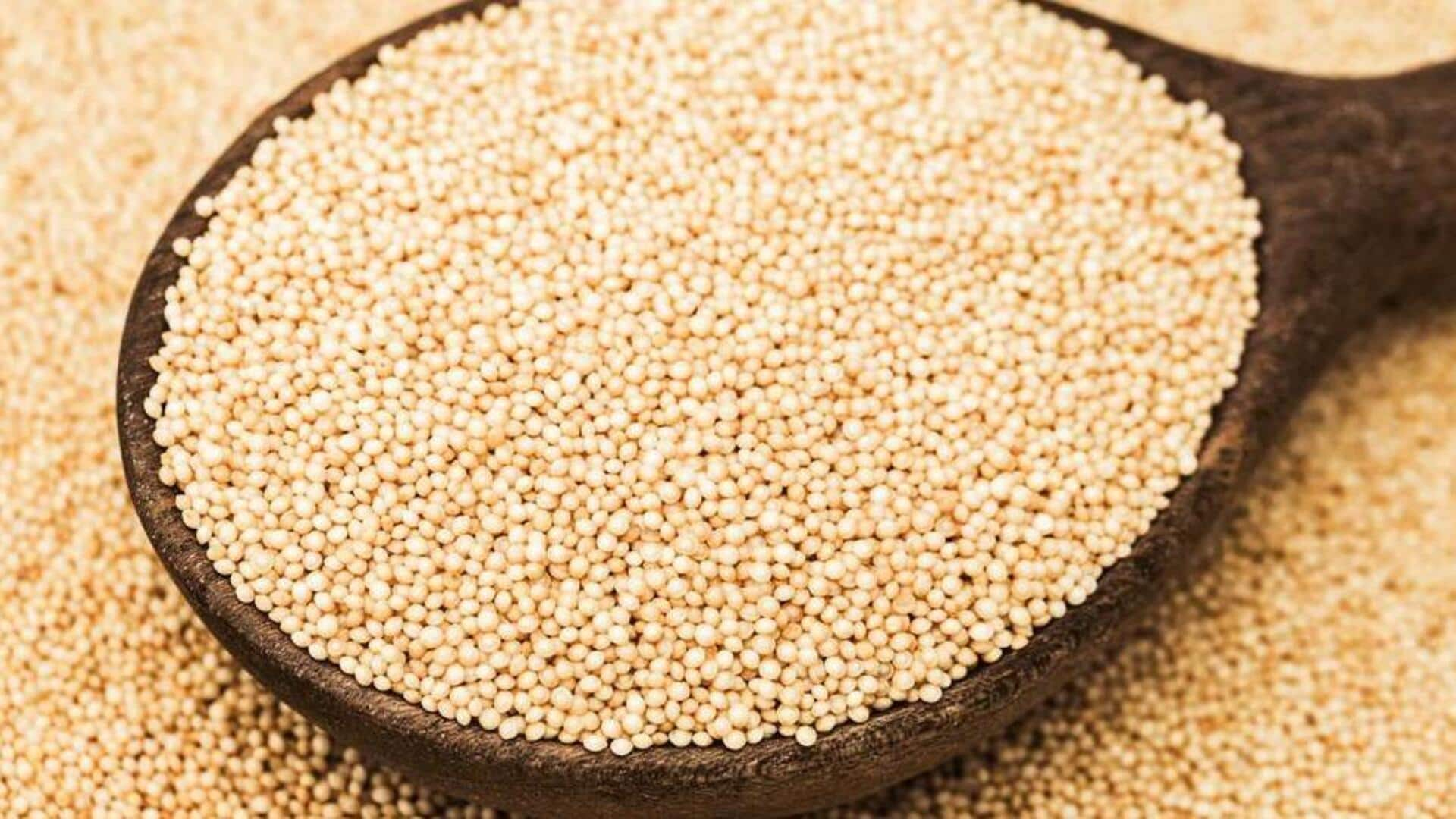
Why amaranth is the superfood your body needs
What's the story
Once a staple in ancient civilizations, amaranth is making a comeback as a superfood. With an impressive nutritional profile, amaranth is packed with protein, fiber, and essential micronutrients. This gluten-free grain offers numerous health benefits and can be easily incorporated into various dishes. As more people seek healthier dietary options, here's what you should know about the advantages of amaranth.
Nutritional value
Nutritional powerhouse of amaranth
Amaranth is high on protein and has all nine essential amino acids. It offers approximately 13% to 14% protein content by weight. It is also high on fiber, which facilitates digestion and keeps cholesterol levels in check. The grain is also rich in iron, magnesium, phosphorus, and manganese. These nutrients benefit overall health by supporting bone health and increasing energy levels.
Gluten-free option
Gluten-free alternative for diets
For the gluten-sensitive and celiac patients, amaranth makes a great substitute for wheat-based grains. Its inherently gluten-free nature renders it fit for a range of diets, without sacrificing taste or texture. You can use amaranth flour for baking or as a thickening agent in soups and sauces, without losing out on its health benefits.
Culinary uses
Versatile culinary uses of amaranth
Amaranth's versatility makes it appropriate for a variety of culinary applications. It can be cooked like rice or quinoa for salads or side dishes. Popped amaranth can also be used to add a crunchy texture to snacks or breakfast cereals. Its mild flavor goes well with sweet and savory ingredients, making it easily adaptable for different recipes from porridge to pilafs.
Health benefits
Health benefits beyond nutrition
Beyond its nutritional value, amaranth also provides anti-inflammatory benefits from bioactive compounds such as squalene and peptides. These may reduce inflammation markers with regular consumption along with healthy lifestyle habits. These include exercise, balanced diets, adequate hydration, and stress management techniques. This holistic approach supports optimal wellness and contributes to achieving desired health outcomes.